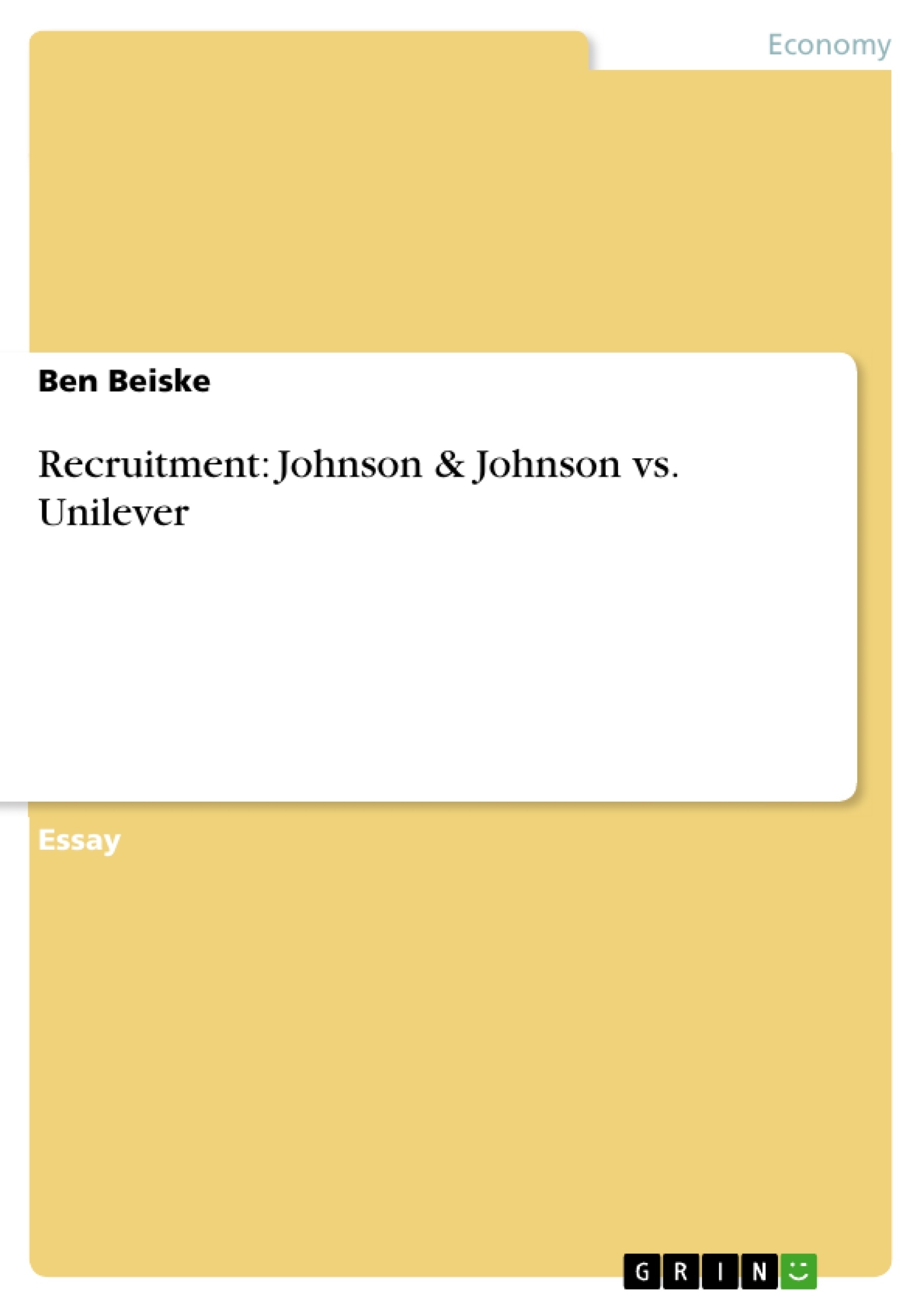This paper will consider how Johnson & Johnson (J&J) and Unilever recruit and select managerial staff, and how these companies focus on the development of managerial staff. Both similarities and differences will be highlighted in each section. Further, a critical examinination of the benefits and challenges of the overall strategies and policies are investigated. Finally, the last part of this paper is concerned with possible improvements to the training programs implemented at both J&J and Unilever, based on each company’s unique position and value system.
Table of Contents
- Part I
- RECRUITMENT AND SELECTION
- SET OF CRITERIA
- General
- Specific
- PLACE OF RECRUITMENT
- ACTUAL SELECTION PROCESS
- DEVELOPMENT
- FORMAL TRAINING
- TALENT SPOTTING
- EXPATRIATION
- CHALLENGES
- Part II
- JOHNSON & JOHNSON
- UNILEVER
- Part III
- DEFINING THE GLOBAL MINDSET
- FOSTERING THE GLOBAL MINDSET THROUGH TRAINING
Objectives and Key Themes
This case analysis examines the recruitment and selection processes, as well as the development of managerial staff, at two global giants: Johnson & Johnson (J&J) and Unilever. The analysis aims to highlight both similarities and differences in their approaches, exploring how these companies manage people globally for competitive advantage.
- Recruitment and Selection Processes
- Development of Managerial Staff
- Global Mindset Development
- Company Culture and Values
- Talent Spotting and Management
Chapter Summaries
Part I of the analysis focuses on the recruitment and selection processes employed by both J&J and Unilever. It examines the specific criteria considered, including general values, company culture, and required skills. The analysis also explores the geographical locations from which these companies recruit candidates, as well as the actual selection processes involved. Part I concludes by examining the development programs implemented by J&J and Unilever to enhance the skills and global perspectives of their managerial staff.
Keywords
This case study centers on the core concepts of recruitment, selection, development, global mindset, company culture, talent management, and international experience within the context of two global corporations: Johnson & Johnson and Unilever. The analysis examines key aspects of human resource management in a globalized business environment.
- Quote paper
- Ben Beiske (Author), 2003, Recruitment: Johnson & Johnson vs. Unilever, Munich, GRIN Verlag, https://www.grin.com/document/15455



